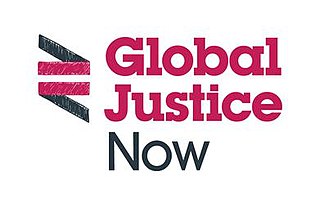
Human rights are moral principles or norms for standards of human behaviour and are regularly protected as substantive rights in substantive law, municipal and international law. They are commonly understood as inalienable, fundamental rights "to which a person is inherently entitled simply because she or he is a human being" and which are "inherent in all human beings", regardless of their age, ethnic origin, location, language, religion, ethnicity, or any other status. They are applicable everywhere and at every time in the sense of being universal, and they are egalitarian in the sense of being the same for everyone. They are regarded as requiring empathy and the rule of law, and imposing an obligation on persons to respect the human rights of others; it is generally considered that they should not be taken away except as a result of due process based on specific circumstances.
International human rights law (IHRL) is the body of international law designed to promote human rights on social, regional, and domestic levels. As a form of international law, international human rights law is primarily made up of treaties, agreements between sovereign states intended to have binding legal effect between the parties that have agreed to them; and customary international law. Other international human rights instruments, while not legally binding, contribute to the implementation, understanding and development of international human rights law and have been recognized as a source of political obligation.

The International Union for the Protection of New Varieties of Plants or UPOV is a treaty body with headquarters in Geneva, Switzerland. Its objective is to provide an effective system for plant variety protection. It does so by defining a blueprint regulation to be implemented by its members in national law. The expression UPOV Convention also refers to one of the three instruments that relate to the union, namely the 1991 Act of the UPOV Convention, 1978 Act of the UPOV Convention and 1961 Act of the UPOV Convention with Amendments of 1972.

Global Justice Now, formerly known as the World Development Movement (WDM), is a membership organisation based in the United Kingdom which campaigns on issues of global justice and development in the Global South.
Minority rights are the normal individual rights as applied to members of racial, ethnic, class, religious, linguistic or gender and sexual minorities, and also the collective rights accorded to any minority group.

Joseph Halevi Horowitz Weiler is an American academic, currently serving as European Union Jean Monnet Chair at New York University School of Law and Senior Fellow of the Minda de Gunzburg Center for European Studies, Harvard.
An international non-governmental organization (INGO) is an organization which is independent of government involvement and extends the concept of a non-governmental organization (NGO) to an international scope.

The Federal Public Service Foreign Affairs, Foreign Trade and Development Cooperation is the foreign affairs ministry of Belgium and is responsible for Belgian foreign policy, relations with the European Union, development cooperation policy and certain aspects of foreign trade policy. The central government in Brussels directs the network of diplomatic and consular representations abroad.
The Paris Principles were defined at the first International Workshop on National Institutions for the Promotion and Protection of Human Rights held in Paris on 7–9 October 1991. They were adopted by the United Nations Human Rights Commission by Resolution 1992/54 of 1992, and by the UN General Assembly in its Resolution 48/134 of 1993. In addition to exchanging views on existing arrangements, the workshop participants drew up a comprehensive series of recommendations on the role, composition, status and also functions of national human rights institutions (NHRIs). These built on standards previously adopted by the 1978 Geneva Seminar on National and Local Institutions for the Promotion and Protection of Human Rights’, which produced the ‘Guidelines on the Structure and Functioning of National and Local Institutions for the Promotion and Protection of Human Rights’. The 1993 Paris Principles regulate to the status and functioning of national institutions for the protection and promotion of human rights known as National Human Rights Institutions.

Human trafficking is the trade of humans for the purpose of forced labour, sexual slavery, or commercial sexual exploitation.

Martin Scheinin is an international law scholar who served as the first United Nations Special Rapporteur on human rights and counter-terrorism in 2005–2011. He was selected for this position after serving for eight years (1997–2004) as member of the United Nations Human Rights Committee, the independent expert body monitoring states' compliance with the International Covenant on Civil and Political Rights. While on the committee, he was known as a defendant of the rights of minorities and indigenous peoples and opponent of capital punishment, as well as the drafter of the committee's General Comment No. 29 on states of emergency.

Renate Weber is a Romanian lawyer and human rights activist who, in November 2007, was elected as Member of the European Parliament. She is the first Romanian appointed as Chief of an EU Election Observation Mission. Between 2004–2005 she was Advisor on constitutional and legislative matters to then President of Romania, Traian Băsescu. She previously served as the Romanian Ombudsman as well from June 2019 until mid June 2021.

Environmental issues are disruptions in the usual function of ecosystems. Further, these issues can be caused by humans or they can be natural. These issues are considered serious when the ecosystem cannot recover in the present situation, and catastrophic if the ecosystem is projected to certainly collapse.
Labour standards in the World Trade Organization are binding rules, which form a part of the jurisprudence and principles applied within the rule making institutions of the World Trade Organization (WTO). Labour standards play an implicit, but not an overt role within the WTO, however it forms a prominent issue facing the WTO today, and has generated a wealth of academic debate.
Human Rights Impact Assessment is a process for systematically identifying, predicting and responding to the potential human rights impacts of a business operation, capital project, government policy, or trade agreement. It is designed to complement a company or government’s other impact assessment and due diligence processes and to be framed by appropriate international human rights principles and conventions. It is also rooted in the realities of the particular project by incorporating the context within which it will operate from the outset, and by engaging directly with those peoples whose rights may be at risk.
Tuvalu is a small island nation in the South Pacific, located North of Fiji and North West of Samoa. The population at the 2012 census was 10,837. Tuvalu has a written constitution which includes a statement of rights influenced by the United Nations Universal Declaration of Human Rights and the European Convention on Human Rights. While most human rights in Tuvalu are respected, areas of concern include women’s rights and freedom of belief, as well as diminishing access to human rights in the face of global warming. The latter has played a major role in the implementation of human rights actions in Tuvalu given its geographical vulnerability and scarce resources.

Human rights and climate change is a conceptual and legal framework under which international human rights and their relationship to global warming are studied, analyzed, and addressed. The framework has been employed by governments, United Nations organizations, intergovernmental and non-governmental organizations, human rights and environmental advocates, and academics to guide national and international policy on climate change under the United Nations Framework Convention on Climate Change (UNFCCC) and the core international human rights instruments. In 2022 Working Group II of the IPCC suggested that "climate justice comprises justice that links development and human rights to achieve a rights-based approach to addressing climate change".

The United Nations Guiding Principles on Business and Human Rights (UNGPs) is an instrument consisting of 31 principles implementing the United Nations' (UN) "Protect, Respect and Remedy" framework on the issue of human rights and transnational corporations and other business enterprises. Developed by the Special Representative of the Secretary-General (SRSG) John Ruggie, these Guiding Principles provided the first global standard for preventing and addressing the risk of adverse impacts on human rights linked to business activity, and continue to provide the internationally accepted framework for enhancing standards and practice regarding business and human rights. On June 16, 2011, the United Nations Human Rights Council unanimously endorsed the Guiding Principles for Business and Human Rights, making the framework the first corporate human rights responsibility initiative to be endorsed by the UN.

The following outline is provided as an overview of and topical guide to the broad, interdisciplinary subject of globalization:

Alter-globalization is a social movement whose proponents support global cooperation and interaction, but oppose what they describe as the negative effects of economic globalization, considering it to often work to the detriment of, or to not adequately promote, human values such as environmental and climate protection, economic justice, labor protection, protection of indigenous cultures, peace and civil liberties. The movement is related to the global justice movement.












